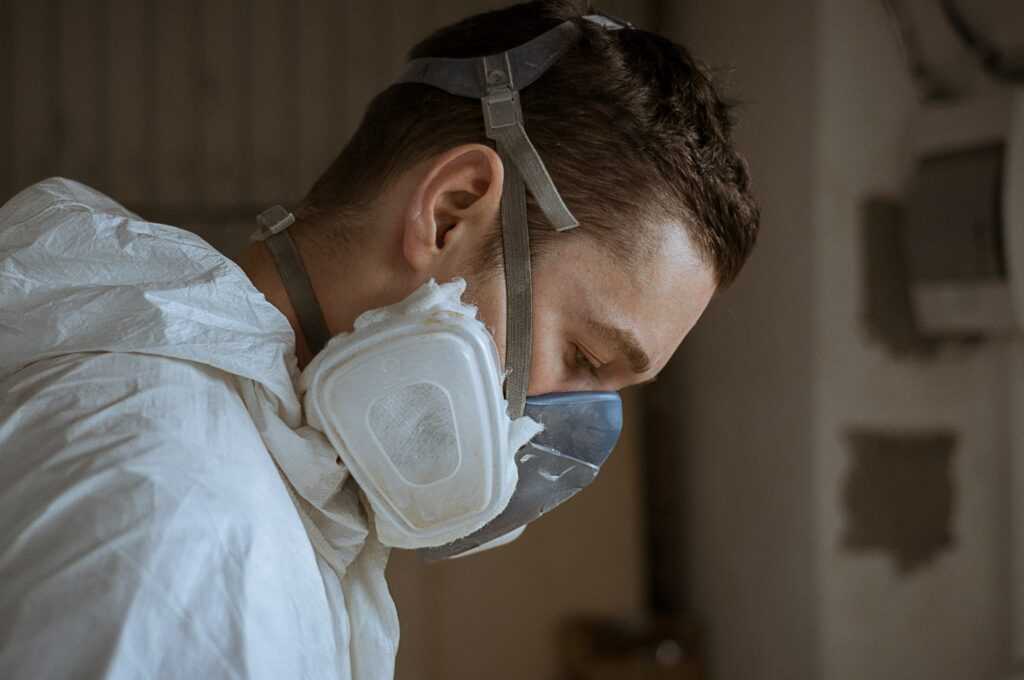What is an Asbestos Survey?
An asbestos survey is a comprehensive inspection conducted to identify the presence and condition of asbestos-containing materials (ACMs) in a building. The survey aims to assess the risk of exposure to asbestos fibers, which can pose serious health hazards.
The process involves a detailed examination of the premises, sampling of materials, and laboratory analysis to confirm the presence of asbestos.
Types of Asbestos Surveys
There are different types of asbestos surveys, each designed for specific situations and requirements. Understanding these types will help you determine which survey is appropriate for your property.
- Management Survey: This is the standard survey for managing asbestos in a building. It aims to ensure that no one is harmed by the continued presence of asbestos in the premises.
- Refurbishment/Demolition Survey: Required before any refurbishment or demolition work is carried out. This survey is more intrusive and involves destructive inspection to gain access to all areas, including those that are difficult to reach.
When is an Asbestos Survey Legally Required?
Legal requirements for asbestos surveys vary depending on the country and region.
However, there are common scenarios where an asbestos survey is typically required:
- Before Renovation or Demolition: If you plan to renovate or demolish a building, a refurbishment/demolition survey is legally required to ensure that asbestos is not disturbed during the process.
- For Commercial Properties: Owners and managers of commercial properties have a legal duty to manage asbestos. This includes conducting regular asbestos surveys to assess and manage the risk.
- When Selling a Property: In some regions, an asbestos survey may be required before selling a property to inform potential buyers of any asbestos risks.
Steps Involved in Conducting an Asbestos Survey
Conducting an asbestos survey involves several key steps to ensure thorough inspection and accurate results.
Here’s a breakdown of the typical process:
- Initial Assessment: The surveyor will conduct a preliminary assessment to understand the building’s history and any previous asbestos reports.
- Visual Inspection: A detailed visual inspection of the premises is carried out to identify potential ACMs.
- Sampling: Samples of suspected materials are collected for laboratory analysis to confirm the presence of asbestos.
- Risk Assessment: The condition of any identified ACMs is assessed to determine the risk of fiber release.
- Reporting: A comprehensive report is prepared, detailing the findings, risk assessments, and recommendations for managing any identified asbestos.
Why is an Asbestos Survey Important?
Conducting an asbestos survey is not just a legal obligation but also a critical step in ensuring the safety of building occupants. Here are some reasons why an asbestos survey is important:
Health and Safety: Asbestos fibers, when inhaled, can cause serious health issues, including lung cancer and asbestosis. Identifying and managing asbestos reduces the risk of exposure.
Legal Compliance: Failing to conduct an asbestos survey when required can result in legal penalties and liabilities.
Property Value: Knowing the asbestos status of a property can affect its market value and ease of sale.
Choosing a Qualified Asbestos Surveyor
When selecting a professional to conduct an asbestos survey, it is crucial to choose a qualified and experienced surveyor. Here are some tips to help you make the right choice:
Check Credentials: Ensure the surveyor is accredited and has the necessary qualifications to conduct asbestos surveys.
Experience: Look for a surveyor with a proven track record and experience in conducting surveys for similar properties.
References: Ask for references or testimonials from previous clients to gauge the surveyor’s reliability and professionalism.
Conclusion: Ensuring Safety and Compliance
In conclusion, an asbestos survey is a vital process for ensuring the safety of building occupants and compliance with legal requirements. Whether you are a property owner, manager, or developer, understanding the importance of asbestos surveys and when they are required can help you manage risks effectively. By choosing a qualified surveyor and following the necessary steps, you can protect both your property and the people who use it.




